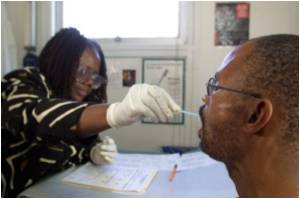
In contrast, there was no relationship between fatal strokes and vitamin D deficiency among blacks, even though blacks in the study generally had a 60 percent higher risk of dying from stroke compared to whites.
These results held true after researchers accounted for various socioeconomic and stroke risk factors in both groups. Nearly 7 percent of whites in the study were vitamin D deficient, compared to slightly over 32 percent of blacks.
The results are indeed surprising as previous studies have indicated blacks are both more likely to have low levels of vitamin D and more likely to have strokes compared to whites.
“We thought maybe the lower vitamin D levels might actually explain why blacks have higher risks for stroke,” said Erin Michos, M.D., M.H.S., the study’s lead researcher and an assistant professor of medicine at Johns Hopkins University School of Medicine in Baltimore, Md. “But we did not find the same relationship between vitamin D and stroke in blacks.”
The study further shapes an emerging body of research about the potential health benefits of Vitamin D, a fat soluble vitamin involved in bone health that helps prevent rickets in children, protects against severe bone loss in adults, and potentially lowers the risks of heart disease, cancer, multiple sclerosis, diabetes and other medical conditions. Sources of vitamin D include exposure to ultraviolet B rays in sunlight, and eating fatty fish, egg yolks and fortified foods such as milk products and breakfast cereals.
Advertisement
Average levels of vitamin D were significantly lower in blacks compared to whites. By 2006, according to the National Death Index, there were a total 176 deaths from fatal stroke (116 among whites and 60 among blacks).
Advertisement
Blacks may have a natural resistance to the negative effects of low vitamin D levels, which might also explain the lower frequency of bone fractures despite the higher prevalence of vitamin D deficiency among blacks, Michos said.
“Since stroke is the No. 3 cause of death in the United States, it’s important for us to consider low vitamin D as a possible risk factor for stroke at least among whites,” Michos said.
Clinical trials are needed to determine whether treating vitamin D deficiency will help lower stroke risks, she said.
Researchers only had access to death records and thus couldn’t account for stroke survivors, which potentially limits the study’s reach. Since blood levels of vitamin D were only measured at the beginning of the study, this may not have been an accurate reflection of the participants’ lifetime vitamin D status, Michos said.
NHANES-III is sponsored by the Centers for Disease Control and Prevention and the National Center for Health Statistics.
Source-Medindia













